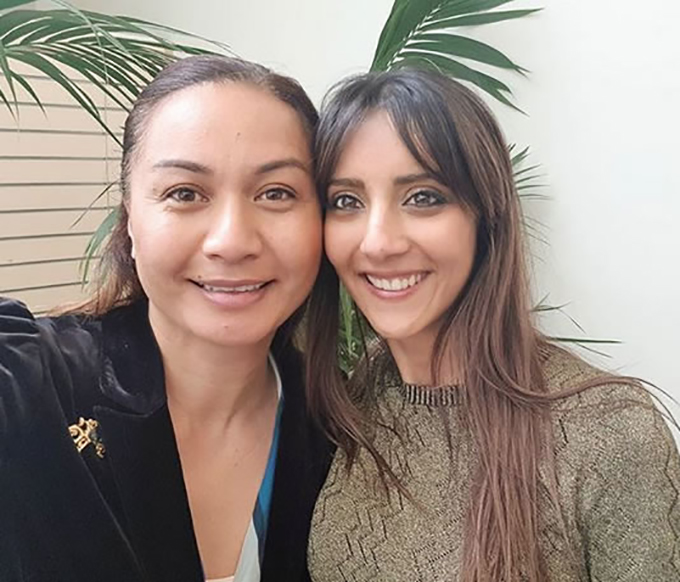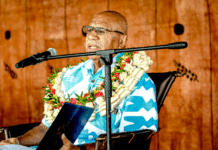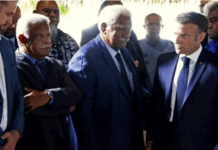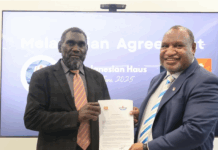
By Kirsty Johnston of The New Zealand Herald
Most of Golriz Ghahraman’s childhood memories are of war.
She remembers howling sirens, sending families scurrying into basements. She remembers people being trapped. She remembers families trying to escape the country, fearful of being targeted for their beliefs.
Others simply disappeared.
“We knew one guy… a 16-year-old, a friend’s cousin. He was writing graffiti on a wall and then he was gone,” she says. “In the 1980s people would just disappear. There’s unmarked mass graves of people who had registered as communists. The regime was particularly harsh on political dissidents.”
READ MORE: Election 2017: Labour-Green bloc picks up two seats
Ghahraman, the Green Party’s newest Member of Parliament following the special vote count, was born in Iran in 1981 amid the post-revolution conflict with Iraq.
She was confirmed on Saturday as a new MP after the counting of almost 390,000 special votes.
The fighting stopped when she was eight. A year later the borders opened and her parents found a way to leave, booking a government-sanctioned “holiday” to Malaysia.
“I think people knew what was happening because they were crying at the airport, but we had to be like, ‘Bye, we’re going to have a great time.’ We couldn’t sell the house or anything.”
Seeking asylum
From Malaysia they booked flights to Fiji that had a stopover in Auckland, where they hoped they could seek asylum as political refugees.
After slipping out of transit and declaring themselves to an airport official, the family found staff more worried about potential biosecurity hazards than their visa status.
“There was a leaf in one of my shoes,” Ghahraman says. “They were intensely interested in that, like almost sending it away for analysis.”
Ghahraman liked her new country. It was okay to be a refugee in West Auckland; it was okay to be poor. Auckland Girls’ Grammar was similarly diverse. She didn’t feel special, or different to the other girls.
It wasn’t until university – where she studied law to keep her parents happy and history to please herself – Ghahraman began to think more about her heritage.
“We aren’t the proponents of terror”
“Nine-eleven shifted things for me,” she says. “I’d forgotten that we were Iranian or Middle Eastern. I was just doing my thing and then I realised the way other people see you can be defining.
“So I started to own that identity.”
‘Rescued’ from her culture
Because she wore Western clothes – Ghahraman isn’t Muslim – and went to university, people liked to think she had been “rescued” from her own culture.
“But it’s not like that. Yes we are from the Middle Eastern world but we aren’t the proponents of terror. We’ve had to escape the terror but that doesn’t make us not Middle Eastern.
“Our culture has diversity too, it has feminism and democracy movements.”
The interest in her country’s war and a broader interest in human rights led her to Amnesty International, where she set her sights on working as a prosecutor at international war crimes tribunals.
“I’m one of those freak shows that had a 10-year plan,” she says. “I knew I had to get criminal law experience and a masters degree. So I did the bar, I did criminal law and I had an Oxford course bookmarked on my computer.”
Her CV, which includes prosecuting leaders of the Khmer Rouge in Cambodia, sounds intimidatingly impressive. In person, however, Ghahraman is comfortingly human, answering the door for our interview pre-election in stockinged feet, having rushed to finish her make-up.
Prosecuting for the United Nations
She says the international tribunals weren’t so different to her early work as a defence lawyer in Manukau.
“It’s just like any criminal trial – although the politicians are so charismatic. You have to simply focus back on the evidence and just be a lawyer.”
Ghahraman left her job in Cambodia in 2012, arriving back at the end of National’s second term. She felt like everything had changed.
“We used to pride ourselves on being a country where our values were about everyone having a certain basic level of life,” she says. “We were so big here on taking care of everyone and suddenly that was gone.”
She cites the plans to prospect for coal in national reserves, child poverty and democracy issues – like dissolving the Canterbury regional council – as incidents that jolted her into joining politics.
The other was the family carers bill, passed into legislation under urgency, which explicitly removed families’ rights to challenge funding decisions in court. Ghahraman later worked on the case.
“We had never seen that in New Zealand before, never had this willingness politically to interfere with the other institutions – the courts, the free press, the human rights agencies – and that’s concerning.”
Forging a political career
Those are the kinds of issues she says she wants to focus on in Parliament.
During the campaign, however, she faced abuse over a number of other unrelated issues – mainly from Twitter – such as comments about her ethnicity, her intelligence and her looks.
“It didn’t bother me at all at first, but some days you open it and it’s like, really?” she says. “And to think that some people are being silenced by this. At least I can respond.”
In her increasingly rare spare time, Ghahraman likes to travel with her partner, comedian Guy Williams. She also likes to host dinner parties, despite confessing to being a bad cook.
She remains a member of the executive of the NZ Criminal Bar Association, and says her criminal law experience – where she spent a lot of time trying to help people into rehab or other support – is central to the way she wants to approach her political career.
“How we treat everyone, including the delinquents, that’s the making of us,” she says.
Kirsty Johnston is an investigative reporter at The New Zealand Herald. This article has been republished with permission.















































